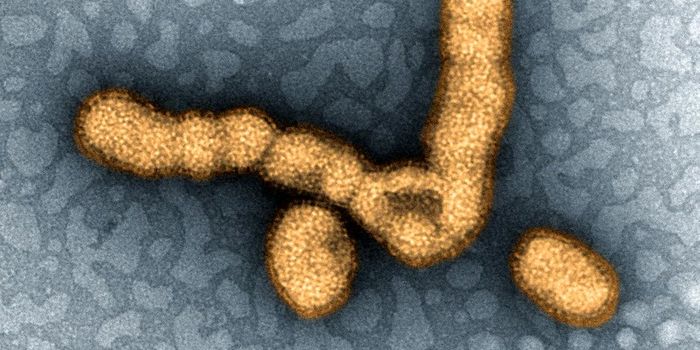Many Common Drugs Have a Significant Impact on the Gut Microbiome
Research has shown that drugs can impact the community of gut microbes that we carry and which has been shown to have a significant influence on various aspects of our health - our gut microbiome (described in the video). A new study that assessed human samples confirms that work, and has shown that eighteen common drugs exert extensive impacts on the metabolism and composition of the gut microbiome. Antimicrobial resistance in gut microbes was also shown to be elevated by eight different classes of drugs. The findings have been presented at UEG Week 2019.
In this work, the scientists assessed 1,883 fecal samples, which enables researchers to get a snapshot of the microbial community in the gut. The samples were obtained from healthy individuals and people with inflammatory bowel disease (IBD). The investigators looked at the microbial species that were present in people that took medicines from 41 categories of drugs and compared them with people that don’t take drugs. They found that drugs can increase the risk of obesity, intestinal conditions, and other disorders that have been connected to the gut microbiome.
Trillions of microbes can be found in the gut microbiome, and at least 1900 different species of bacteria may be present there. Disruption, disorder, and a lack of diversity in the gut microbiome have been connected to the development of metabolic disease, some types of cancer, mental problems, and neurodegenerative diseases.
Antibiotics, unsurprisingly, were shown to have a big impact on the microbiome. Other drugs that had a significant effect include proton pump inhibitors, which are used to treat ulcers, gastroesophageal reflux disease, and dyspepsia. The proton pump inhibitors raised the levels of bacteria in the upper gastrointestinal tract and elevated the production of fatty acids.
Metformin, which is used to treat type 2 diabetes, was linked to an increase in Escherichia coli in the gut. Laxatives were also found to impact the gut microbiome.
Antidepressants called selective serotonin reuptake inhibitors (SSRIs) were associated with major shifts in gut bacteria populations. Especially in people with IBD, SSRIs were linked to high levels of a potentially harmful microbe called Eubacterium ramulus. Oral steroid users were found to have high levels of methanogenic bacteria, which have been connected to obesity.
"We already know that the efficiency and the toxicity of certain drugs are influenced by the bacterial composition of the gastrointestinal tract and that the gut microbiota has been related to multiple health conditions; therefore, it is crucial to understand which are the consequences of medication use in the gut microbiome. Our work highlights the importance of considering the role of the gut microbiota when designing treatments and also points to new hypotheses that could explain certain side-effects associated with medication use," said the lead researcher Arnau Vich Vila.
Learn more about research in this field from the video.
Sources: AAAS/Eurekalert! via Spink Health








